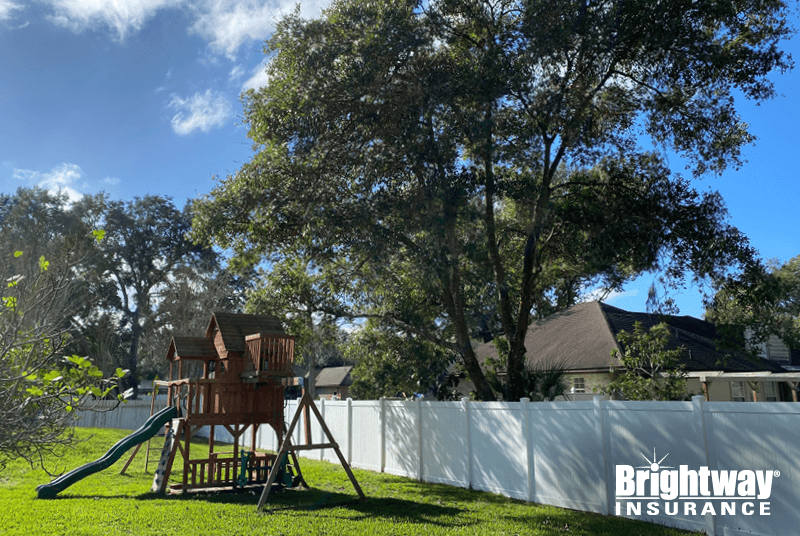
Few things seem more all-American than a tree-lined neighborhood. Whether your property is punctuated by stately oaks, lush pines, breezy maples or some other variety, healthy trees can add curb appeal and even value to your home.
Neglected trees, however, can be a nuisance. Worse, they can be a danger to you and your family.
They also can be a point of contention between neighbors. What do you do when a neighbor’s tree looms menacingly over your home, drops branches on your yard or simply topples on to your property?
Brightway agents do more than just sell and service insurance policies. They work with people to help them avoid and minimize risks. And, from working with our customers, we know there tends to be some confusion when trees and neighbors intersect. Here are a few things to know.
Your rights and responsibilities for your property Generally speaking, what happens on your property is your responsibility; what happens on your neighbor’s property is his or her responsibility. Each of us is responsible for maintaining our trees. So:
If a neighbor’s tree is unhealthy and threatens your property, it’s his or her responsibility to have the tree inspected, treated or pruned, and possibly removed by a professional. Of course, all this is your responsibility if an unhealthy tree is on your property.
If a neighbor’s tree branches hang over your property, you usually have the right to trim them, regardless of the tree’s health. You can’t, however, trim anything on your neighbor’s property or remove the tree without his or her permission. Check with your local government before taking any action to ensure you comply with the law.
If a neighbor’s healthy tree (or a branch from a tree) falls on to your property, you’re generally responsible for the removal, and for any damage it causes to your home. If this does happen, contact your insurance company. According to the Insurance Information Institute, tree damage is covered by most standard Homeowners insurance contracts (though removal of the tree is usually not covered). Damage to a parked car would be covered by the comprehensive coverage on the vehicle’s policy.
If you’ve complained to your neighbor about a nuisance tree (more about this in a bit), and that tree falls on your property, he or she may be responsible. Again, contact your insurance company. Through a process called subrogation, the company can work with the neighbor’s insurer to determine who’s responsible, and whose policy should pay for any property damage or injury.
If you believe a neighbor’s tree is a nuisance Say you’re mowing your backyard, look over into your neighbor’s yard, and notice what seems like rot at the base of one of his or her trees. Or perhaps a neighbor’s tree is frequently dropping large branches on your yard. And perhaps that neighbor isn’t doing anything about it. What’s next?
Start by simply talking to your neighbor. He or she may not be aware of the condition of the tree or the threat it poses to your property and family. Hopefully, he or she will take responsibility—like good neighbors do—and have the nuisance tree addressed properly and in a timely way.
If your neighbor is resistant to the conversation, denies responsibility, or simply refuses to act, consider contacting a real estate attorney to be a mediator. An attorney may also advise you to file a nuisance claim in your local court. If the court agrees with the claim, it could order the neighbor to remove the tree.
Another option is to contact your local government. Most cities have ordinances prohibiting dangerous conditions such as nuisance trees. The city may order the neighbor to remove the tree within a specific time frame.
Most people understandably try to avoid having attorneys, courts and local governments involved in their personal affairs. However, you owe it to yourself to understand your responsibilities, your rights and your options. And you owe it to yourself to minimize the risk to your family and property.